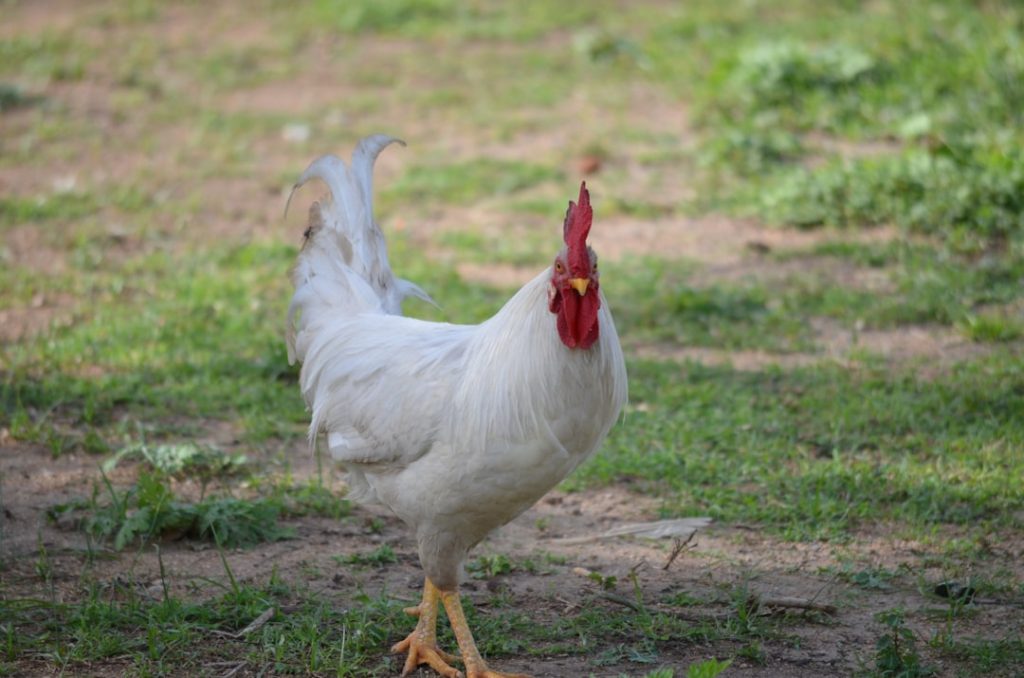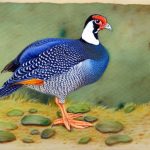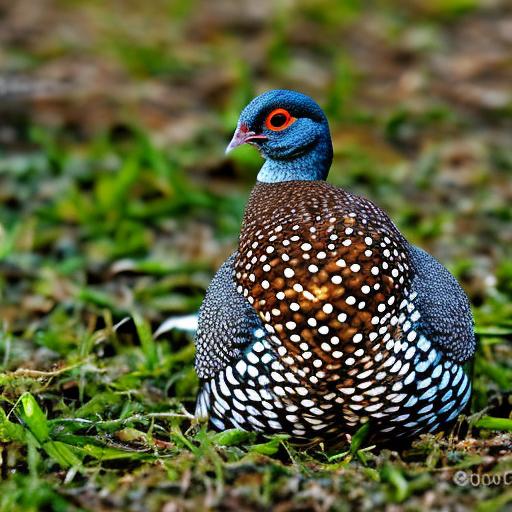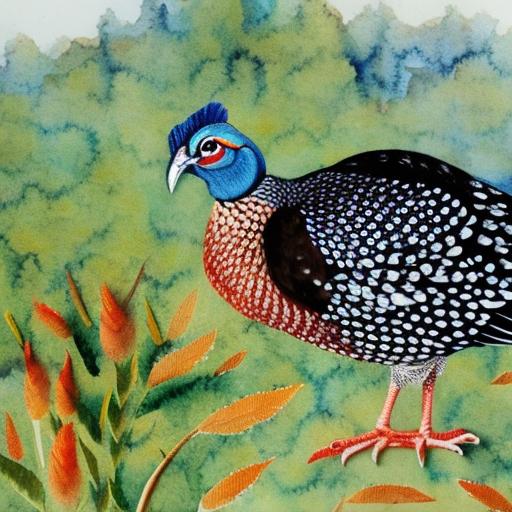Guinea fowl breeding is a practice that has been around for centuries, with these unique birds being raised for their meat, eggs, and pest control abilities. Guinea fowl are native to Africa and have been domesticated for thousands of years. They are known for their distinctive spotted feathers and loud, raucous calls. In recent years, there has been a growing interest in guinea fowl breeding as people seek out alternative sources of protein and pest control methods that are more sustainable and environmentally friendly.
Guinea fowl are hardy birds that are well-suited to a variety of climates and environments, making them an attractive option for small-scale farmers and homesteaders. They are also known for their ability to forage for insects and other pests, making them a valuable addition to any farm or garden. In addition to their practical uses, guinea fowl are also popular for their unique and flavorful meat, which is lean and rich in nutrients. Their eggs are also prized for their rich flavor and high nutritional content. Overall, guinea fowl breeding offers a range of benefits for both the individual breeder and the local community, making it an appealing option for those looking to diversify their farming practices.
Table of Contents
Key Takeaways
- Guinea fowl breeding is a rewarding and sustainable practice that provides a source of income and food for many individuals and communities.
- Each breeder has a unique story and journey in their pursuit of guinea fowl breeding, often driven by a passion for agriculture and animal husbandry.
- Breeding practices and techniques for guinea fowl involve careful selection of breeding stock, proper housing and nutrition, and disease prevention measures.
- Breeders face challenges such as predation, disease outbreaks, and market fluctuations, but also experience successes in the form of healthy flocks and increased income.
- Guinea fowl breeding has a positive impact on the local community by providing employment opportunities, a source of protein, and contributing to the local economy.
- Future plans and goals for breeders may include expanding their flocks, improving breeding practices, and exploring new markets for guinea fowl products.
- To support and learn more about guinea fowl breeding, individuals can connect with breeders, join agricultural organizations, and seek out educational resources on poultry farming.
The Story of the Individual Breeder
One individual breeder who has found success in guinea fowl breeding is Sarah Johnson, a small-scale farmer from rural Ohio. Sarah first became interested in guinea fowl after learning about their pest control abilities and their potential as a sustainable source of meat and eggs. She started her guinea fowl breeding operation with just a few birds, but quickly found that they were well-suited to her farm and provided a range of benefits. Sarah has since expanded her flock and now raises guinea fowl for both meat and eggs, selling her products at local farmers’ markets and to nearby restaurants.
Sarah’s journey as a guinea fowl breeder has not been without its challenges, but she has found great success in her endeavors. She has worked hard to develop her breeding practices and techniques, and has become known in her community for the high quality of her guinea fowl products. Sarah’s dedication to sustainable farming practices and her commitment to providing her community with healthy, locally-sourced food has made her a respected figure in the local agricultural community. Her story is just one example of how guinea fowl breeding can have a positive impact on both the individual breeder and the wider community.
Breeding Practices and Techniques
Breeding guinea fowl requires careful attention to the birds’ needs and behaviors, as well as a solid understanding of breeding practices and techniques. Guinea fowl are known for their strong instincts and independent nature, which can make breeding them a unique challenge. However, with the right knowledge and approach, breeders can successfully raise healthy guinea fowl that thrive in their environment.
One important aspect of guinea fowl breeding is providing the birds with a suitable environment that meets their needs. Guinea fowl require ample space to roam and forage, as well as access to fresh water and shelter from the elements. Breeders must also pay close attention to the birds’ diet, ensuring that they receive a balanced and nutritious feed that supports their growth and overall health. Additionally, breeders must be mindful of the birds’ natural mating behaviors and provide suitable nesting areas for them to lay their eggs.
In terms of breeding techniques, breeders may choose to selectively breed their guinea fowl to emphasize certain traits, such as size or coloration. This can be done by carefully choosing which birds to breed based on their physical characteristics and temperament. Breeders may also use artificial insemination techniques to control breeding outcomes and ensure genetic diversity within their flock. Overall, successful guinea fowl breeding requires a combination of practical knowledge, hands-on experience, and a deep understanding of the birds’ natural behaviors.
Challenges and Successes of Breeding Guinea Fowl
Breeding guinea fowl comes with its own set of challenges, but it also offers numerous successes for those who are dedicated to the practice. One of the main challenges of guinea fowl breeding is predator control. Guinea fowl are vulnerable to a range of predators, including foxes, raccoons, and birds of prey. Breeders must take proactive measures to protect their flock from these threats, such as using secure fencing and providing adequate shelter. Additionally, guinea fowl can be prone to certain diseases and parasites, so breeders must be vigilant in monitoring the health of their birds and providing appropriate veterinary care when needed.
Despite these challenges, there are many successes to be found in guinea fowl breeding. For example, guinea fowl are known for their ability to control pests such as ticks, grasshoppers, and other insects. This natural pest control ability can be a valuable asset for farmers and gardeners looking to reduce reliance on chemical pesticides. Additionally, guinea fowl are prized for their flavorful meat and eggs, making them a popular choice for those seeking out alternative sources of protein. Breeders who are able to successfully raise healthy guinea fowl can find great satisfaction in providing their community with high-quality, locally-sourced food.
Impact on the Local Community
The impact of guinea fowl breeding on the local community can be significant in terms of both economic and environmental benefits. For example, breeders who sell guinea fowl meat and eggs at local markets can contribute to the local economy by providing consumers with a unique and high-quality product. This can help support small-scale farmers and promote sustainable farming practices within the community. Additionally, guinea fowl breeding can have positive environmental impacts by reducing reliance on chemical pesticides through the birds’ natural pest control abilities.
Furthermore, guinea fowl breeding can also help preserve traditional farming practices and heritage breeds within the local community. By raising guinea fowl, breeders can contribute to the conservation of these unique birds and help ensure their continued presence in agricultural landscapes. This can help maintain biodiversity within the local ecosystem and support the overall health of the environment. Overall, guinea fowl breeding has the potential to make a positive impact on the local community by providing valuable products, promoting sustainable farming practices, and contributing to environmental conservation efforts.
Future Plans and Goals for the Breeder
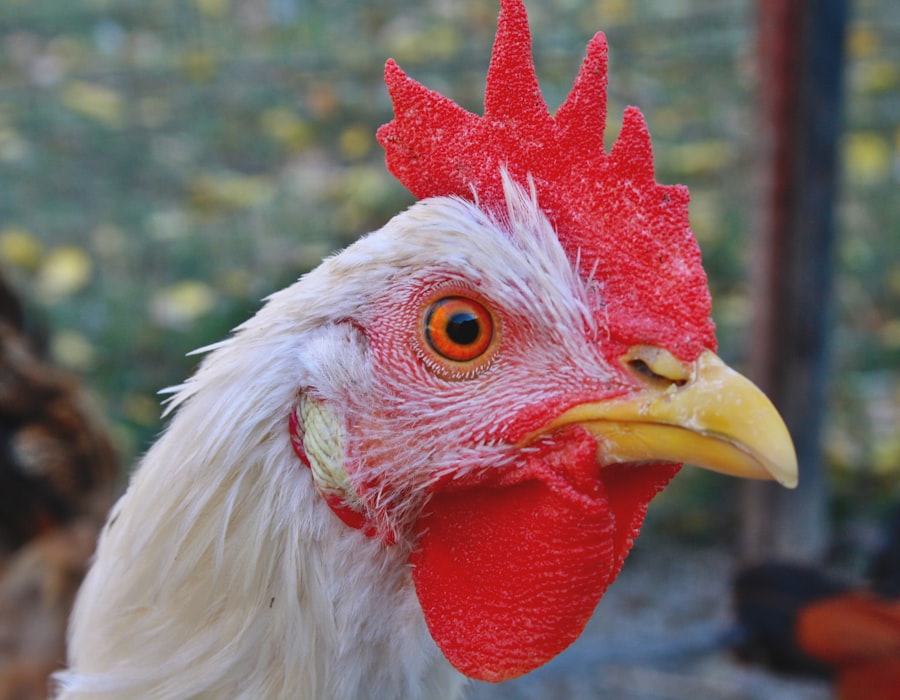
Looking ahead, Sarah Johnson has ambitious plans for the future of her guinea fowl breeding operation. She hopes to continue expanding her flock and increasing her production of guinea fowl meat and eggs to meet growing demand from consumers in her area. Sarah also plans to explore new marketing opportunities for her products, such as partnering with local restaurants or developing value-added products like guinea fowl sausages or prepared meals. Additionally, she is interested in sharing her knowledge and experience with other aspiring guinea fowl breeders by offering workshops or educational resources.
In terms of sustainability, Sarah is committed to further developing her sustainable farming practices and minimizing the environmental impact of her operation. She plans to explore options for integrating her guinea fowl into other aspects of her farm, such as using their manure as fertilizer or incorporating them into rotational grazing systems. By continually improving her breeding practices and embracing innovative approaches, Sarah aims to position herself as a leader in sustainable guinea fowl breeding within her community.
How to Support and Learn More about Guinea Fowl Breeding
For those interested in supporting guinea fowl breeding or learning more about this practice, there are several ways to get involved. One option is to seek out local breeders or farmers who raise guinea fowl and purchase their products directly. This not only supports the breeders themselves but also provides consumers with access to high-quality guinea fowl meat and eggs. Additionally, individuals can explore educational resources such as books, online forums, or workshops that provide information on guinea fowl breeding practices and techniques.
Another way to support guinea fowl breeding is by advocating for sustainable farming practices within your community. This can include promoting the use of natural pest control methods like guinea fowl or encouraging local farmers’ markets to feature products from guinea fowl breeders. By raising awareness about the benefits of guinea fowl breeding and its positive impact on the environment and local economy, individuals can help foster greater appreciation for this unique farming practice.
In conclusion, guinea fowl breeding offers a range of benefits for both individual breeders and the wider community. From providing sustainable pest control solutions to offering high-quality meat and eggs, guinea fowl have much to offer in terms of food production and environmental stewardship. By supporting local breeders and learning more about this practice, individuals can contribute to the continued success of guinea fowl breeding within their communities.
If you’re an individual guinea fowl breeder near Little Rock, you may be interested in learning more about how to provide the best housing for your birds. Poultry Wizard has a helpful article on the benefits of the SnapLock Chicken Coop that could be a great option for your guinea fowl. This coop is designed to provide a safe and secure environment for your birds while also being easy to clean and maintain. It’s definitely worth considering as you continue to care for your guinea fowl.
FAQs
What is a guinea fowl breeder?
A guinea fowl breeder is a person who raises and breeds guinea fowl for various purposes such as meat, eggs, pest control, or as pets.
What are the benefits of buying from an individual guinea fowl breeder near Little Rock?
Buying from an individual guinea fowl breeder near Little Rock allows for direct communication with the breeder, the opportunity to see the living conditions of the birds, and the chance to support a local business.
What should I consider when buying guinea fowl from a breeder near Little Rock?
When buying guinea fowl from a breeder near Little Rock, consider the health and condition of the birds, the breeder’s reputation, and any specific requirements for raising guinea fowl in your area.
How can I find an individual guinea fowl breeder near Little Rock?
You can find an individual guinea fowl breeder near Little Rock by searching online directories, contacting local agricultural organizations, or asking for recommendations from other poultry enthusiasts in the area.
Meet Walter, the feathered-friend fanatic of Florida! Nestled in the sunshine state, Walter struts through life with his feathered companions, clucking his way to happiness. With a coop that’s fancier than a five-star hotel, he’s the Don Juan of the chicken world. When he’s not teaching his hens to do the cha-cha, you’ll find him in a heated debate with his prized rooster, Sir Clucks-a-Lot. Walter’s poultry passion is no yolk; he’s the sunny-side-up guy you never knew you needed in your flock of friends!

